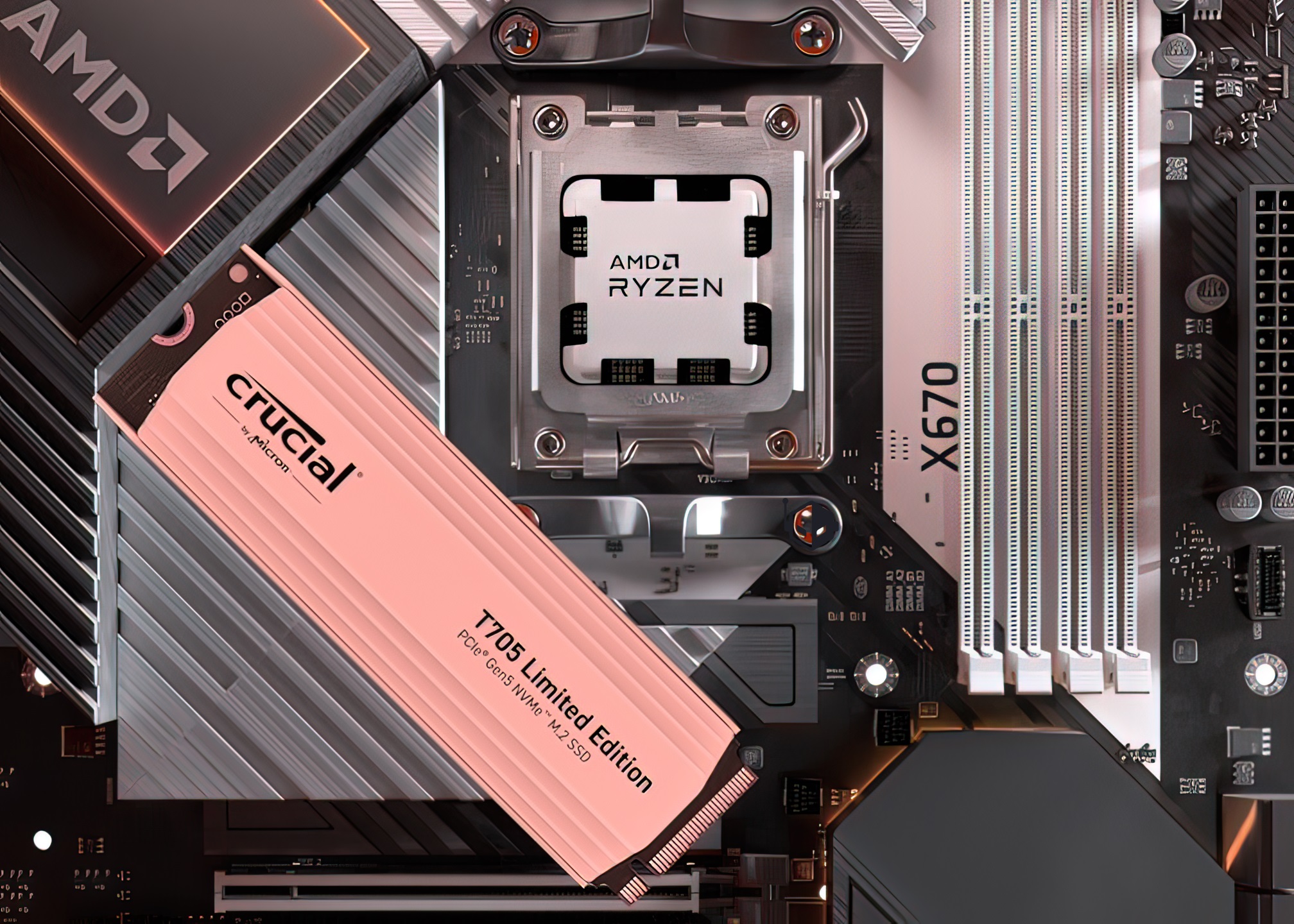Could be a problem with the SSDs as well. AMD released the X670E last year after all. These aren’t new chipsets.
Caught you on reading the title only. Your charge is to read the linked article in the future, before replying.
One of the affected users who is running an ASUS X670E motherboard with the Crucial T705 SSD got a response from Crucial’s support team which is provided below:
We would like to inform you that we escalated your issue to our dedicated team for further investigation, and they informed us that the problem lies with the motherboard rather than the Crucial SSD. This behavior has been observed across various motherboards from different manufacturers, and we were able to replicate it on our in-house systems as well.
The issue seems to occur when a Gen5 SSD is connected to a Gen5 slot on the motherboard, which is why you are not experiencing this problem with your Gen4 drive. If you were to connect the Crucial T705 SSD to Gen4 speeds at all times, this issue would likely be resolved.
Unfortunately, the only fix for this issue is a BIOS update from the motherboard manufacturer. We recommend reaching out to your motherboard’s manufacturer to inquire about a potential BIOS update that addresses this specific problem. We have seen BIOS updates from multiple manufacturers that help resolve this kind of issue.
Please note that the Crucial T705 SSD will perform at whatever speed the motherboard allows, and this is not a fault of the drive itself. We understand the inconvenience and will continue to support you, but at this point, it is necessary to work with the motherboard manufacturer to find a solution.
Crucial Engineering Team
Taknow that’a a pretty respectable response to get, I can really hear the frustration from the support guy “yeah man I don’t know it’s broken but it’s not our shit I’m sorry”
Makes me feel positive about Crucial’s support, though
To Boot into Windows
So Linux works fine or what?
Found another windows-only issue with soundblaster PCI models the other day where the driver causes “an unstable overclock” on the cpu.
I think i read somewhere about the Linux kernel being more strict with some hacks the drivers get away with on Windows.
i would guess that it wouldn’t, as it seems that the motherboard is overusing the pci-e lanes
Sounds like some firmware updates are in order.
- ASUS’ and MSI’s motherboards, not AMD’s.
CPU manufacturers have a lot of say on what motherboard manufacturers can/must do.
Have a lot to say =/= have all to say.
Aren’t those just called specifications? As long as the manufacturer meets those then it’s pretty much fair game what else they do.
Suppose those specifications designed with the CPU maker’s profits in mind. Maybe motherboard manufacturers lose perks if they misbehave beyond just specifications.
Heck, even GPU makers have managed to make motherboard manufacturers their bitch in the past: licensing chips to support their multi-GPU tech.
Kind of odd that some of these x650e boards are so extremely expensive (like MSI’s MEG godlike and Asus ROG Cross hair) that you are better off with a threadripper workstation board and CPU.
Not if you want gaming performance.
I had a 1950X and 2950X, before my current cpu. It was fine, both barely even noticed that it was being taxed by games, like a 10-15% load where my 7800X3D is like 40-50%. Great for video rendering and stuff too, it wasn’t uncommon to do both at the same time and the system was still responsive and quick.
Now I’m not about to drop the kind of cash required to upgrade to a 32-64 core chip, and yet another board, as the prices went out of prosumer/high end enthusiast with 3xxx and beyond. And the fact that TR4 only lasted 2 gens when we were promised much longer service/upgrade lives…
But TR for games is the tits. Financially moronic but it goes baby, it goes.
Okay, maybe not everybody really needs Gen5 speeds, but gen1 is too extreme of an opposite.










